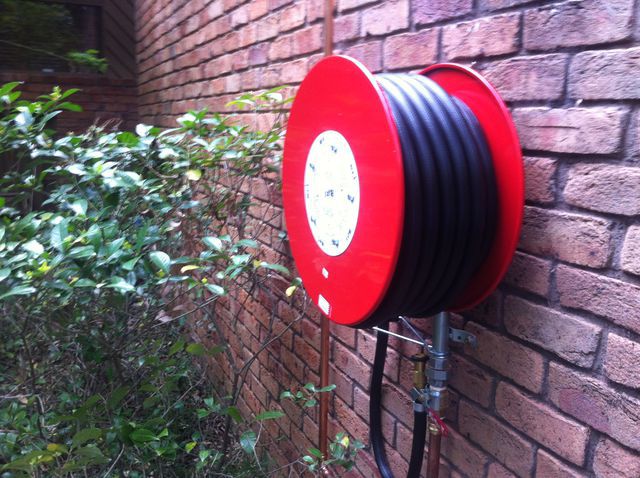Fire is a scary thing to face. And regardless of the time of year, a bushfire’s something all Australians need to be aware of and ready for—particularly in regional areas and on the outskirts of our cities.
But, no matter how well you plan for fire season, you can’t prepare for every eventuality in a bushfire. So, when the authorities tell you to leave your home due to a fire in the area, never prevaricate. You should grab your pre-packed go-bags and evacuate immediately.
Make a plan.
The best time to make a plan is in the off-season, or really wintertime. I know it’s hard to predict bushfire outcomes in a completely different season but it’s the best move you can do.
Put the kettle on, grab your family members, and work out your key guidelines. What will you bring with you when you leave? Where will you go? If you have pets, have you considered their welfare? Do you have any essential medications or official documents that must go with you, like a passport, asthma pump, insulin etc?
Here’s a checklist of other things to consider:
- Prepare your property. Fewer hazards mean less injuries, so here are some ways I reduce risks in advance. They might benefit you, too.
- Declutter your property, and not just as a one-time thing.
- Remove any combustibles from the area, whether it’s rubbish, piles of wood, bark, dried leaves, etc.
- Don’t forget to mow or cut down any grassy areas where you can, especially taking the time to clear out undergrowth beneath any plants, too.
- Clean out any debris or leaves from those gutters, so they can’t catch alight and, when told to evacuate, fill them up with water as another preventative measure.
- Try to keep your lawn or grassy areas as green as possible in advance, setting up timers or sprinklers should the threat come closer to your area.
- Stay updated. Whether it’s digitally or not, it’s important to stay connected.
- Check your fire danger rating in your local area. What colour code does the sign read, and does that affect your course of action? If so, what are you going to do?
- Keep an eye on out on the weather apps and legitimate sources of information, such as the CFA, VIC Emergency, and Bureau of Meteorology.
- Handy tip: download these apps on to your phone or bookmark them on your computer browser. That way it’s really quick and easy to access. The VIC emergency app is great for sending you regular updates automatically, checking neighbouring suburbs and further afield (depending on the range you set) for any risks that could potentially affect your area.
- When disaster strikes. You’ve worked your way through the above list, you’ve prepared months in advance, tried to make your area as safe as possible, and checked and alerted everyone of the latest fire updates.
But when you get notification to leave your property immediately, don’t hesitate. Those official decisions are designed to save lives. A bushfire is unpredictable—it can turn on you in a matter of minutes, if not seconds. And all the preparation in the world can’t prepare you for a raging 1,600ºC wildfire bearing down on you at 14km per hour—far faster than you can run.
Now it’s time to get those pre-packed bags, grab the pets, do those last-minute checks. But most importantly, it’s time to get out of there.
For more information on how to prepare for bushfire, please visit the CFA website.

